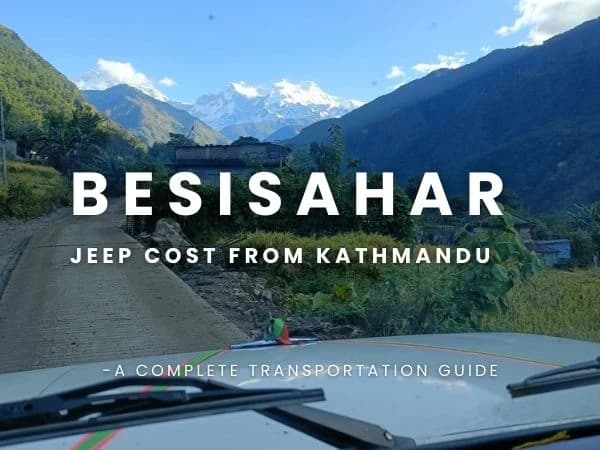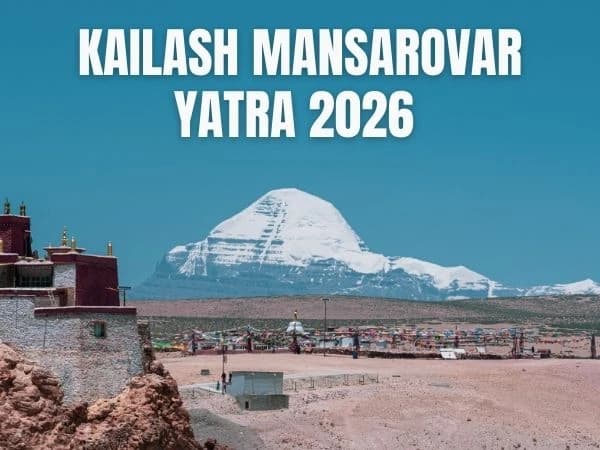Do's and Dont's for your next trekking trip to Nepal:
BECOMING A RESPONSIBLE TREKKER
With great power comes great responsibility. While you have the power to be at the base camp of some of the prominent mountains of the world, you have the responsibility to respect people, save the environment, stay on the right track, follow your guide and acclimatize properly for successful trekking.
Since there are several things you have to consider during the trek, we will mention the top 4 Do's and Dont's that are mandatory to become a responsible trekker:
What to do:
1. Save the environment: Use eco-friendly Products:
In recent times, we have seen a lot of news about trekking sites being filled with plastic bottles, food wrappers, clothing and camping sets that were discarded on the way, which is wrong in so many ways. People trek to the mountains to be close to nature, heal their souls, breathe fresh air and admire the majestic views. Hence, we mustn't pollute the trekking trails and use eco-friendly products that can decompose easily. Instead of buying mineral water and throwing away the bottle, you can fill water in teahouses and use a water purification tablet. Instead of throwing away the food wrappers, you can collect and discard them in the bins of tea houses. There are many eco-friendly products that you can use during your trek to save the environment and be a responsible trekker.
2. Respect your Guide and Porters:

Guide and Porters who accompany you deserve all kinds of love and respect as they make you feel safe, take care of you in the mountains and carry your luggage and load to the destination. Apart from this, they help you get engaged with the locals and let you understand the lifestyle and culture of the mountain region. Bonding well with these gems will allow you to hear many stories and information that might intrigue you.
Although Tipping guides and Potters are not mandatory, being thankful and appreciating their hard work can mean a lot. So remember to be kind and humble and pay fair wages that will not demotivate them.
3. Respect the local culture and tradition:

Trekking in the Mountain region is about exploring the rich culture of ethnic communities like Gurung, Tamang, Limbu, and Sherpa. They all have different values and traditions that they follow from their heart. Hence, hurting their sentiments, disrespecting their values and making fun of them is unacceptable during the trek.
Since the people from the mountain region are kind and hospitable, they will share a generous smile and say Namaste and expect the same kind of energy back from you. As you move to the upper region, you will come across monasteries dating back centuries, holding great importance to the community. Hence put off your shoes outside and pray in silence.
4. Be prepared, prioritize safety and acclimatize Properly:

While being mindful of the environment is mandatory, being prepared for the trip is the most crucial part of trekking. During the trek, you will walk for hours on rocky trails for days. Hence you need to build your stamina and train your body by doing cardio exercises, which will help you on the trip. Along with this, you also have to prepare yourself mentally to face the challenges in the trial. Since the guide and porters have more experience with the trekking routes, weather and acclimatization needs, always listen to them and make wise decisions.
The weather can get rough, and using shortcuts may lead to different hazards. So prioritise your health and safety during the trek.
What not to do:
A simple error in a remote trail can lead to serious problems. Polluting water sources, overpacking, lack of acclimatization and drinking contaminated water can be hazardous to trekkers and people in the area. On top of this, degrading the environment is the worse of all. Among hundreds of things, below mentioned are the top 4 Don't's that you need to avoid to become a responsible trekker:
1. Don’t play music or make loud noise:
On the trail, you will encounter many trekkers with varying interests. While some may like listening to loud music as they walk through the rocky path, some may want to soak up the views and hear the sound of flowing streams, winds and birds chirping. Hence, it is best to make as less noise as possible as it may disturb other trekkers and animals that you encounter on the way. Trekking in Nepal is all about exploring and walking through the conservation area and national park admiring nature, watching birds, and spotting wild lives. So let's not ruin the moment with loud music or noise.
2. Don't Overpack:
Packing bags is a skill that most of us do not have. Hence, we end up overpacking and regret it later. Especially when you are trekking, you have to be very careful about the weight of your bag, as carrying heavy weights causes unnecessary strain. Although guides and porters accompanying you will help you carry the bags, they might suffer from physical pain while carrying your baggage. Therefore, always pack according to the checklist provided by the Trekking company and reduce extra weight.
3. Trekking Solo:
Solo trekking has been gaining a lot of popularity recently, as it provides trekkers with the freedom and a sense of adventure to explore the remote regions of Nepal. However, trekking on an unknown trail alone is dangerous in many ways, as you can get lost along the way, suffer from different health hazards or get trapped in natural calamities. Hence, having a guide by your side will allow you to feel safe and understood among the locals speaking their mother tongue.
Note: Solo trekking has been banned in Nepal from April 1, 2023, for the safety and well-being of the trekkers.
4. Don’t contaminate Water sources:
The primary source of drinking water is the small streams originating from the Himalayas in the remote region. Hence, contaminating the water sources with faecal matter or other waste will result in health hazards among the locals. Drinking contaminated water causes different problems like diarrhoea, vomiting, nausea, cholera and dysentery. Hence, do not pollute the water and purify water with a purification tablet in the teahouse.
Conclusion:
Becoming a responsible trekker is about being empathetic and concerned about yourself, people and the environment. It's about making wise decisions and listening to experienced guides to avoid making harsh decisions you will regret later. So during your next trekking trip, remember to be kind, respect the culture and people, and not pollute the beautiful trekking trails.
Check out some of the most populsar Trekking destination in 2023:
FAQ's on Trekking in Nepal:
1. Is it safe to trek in Nepal?
✔ Yes. Trekking in Nepal is safe, as a guide will always accompany you. Having a guide by your side will help you to be comfortable, as they will take care of you and advise you to take precautions to avoid the potential health risks caused due to improper hygiene practices and natural hazards.
2. What are some environmentally friendly trekking practices?
✔ Some of the environmentally friendly trekking practices includes carrying trash bags and using reuseable water bottles instead of buying mineral water bottle at every teahouses. Apart from this, using eco-friendly products such as biodigredable toiletries and avoiding damage of vegetation are also highly appreciated.
3. How can I support the local community while trekking in Nepal?
✔ One of the kindest things to do during trekking in Nepal is to buy local souvenirs and handicrafts. The mountain region of Nepal also has local cheese factories where you can taste and buy fresh cheese. Even if you are not into souvenirs, you can donate money for local community projects, monasteries or conservation projects.
4. What are the most popular trekking routes in Nepal?
✔ Nepal has plenty of trekking destinations, which allow you to choose your destination based on the days you are willing to spend on the mountains or the view you expect to enjoy. If you are looking for short trekking trips, Khumai Danda Trek, Ghorepani Poonhill Trek, Mardi Trek and Ghandruk Trek are perfect. However, if you want to witness the prominent mountains, the popular treks are the Everest Base Camp Trek, Annapurna base camp trek, Langtang Trek, Annapurna circuit trek and Manaslu circuit trek.
5. Why is it important to be a responsible trekker?
✔ Trekking is more than just walking in the remote region because, you will explore the conservation areas and meet locals. Hence, to preserve the environment, help the local community, and protect the culture, we must be responsible and be kind to everyone involved.








